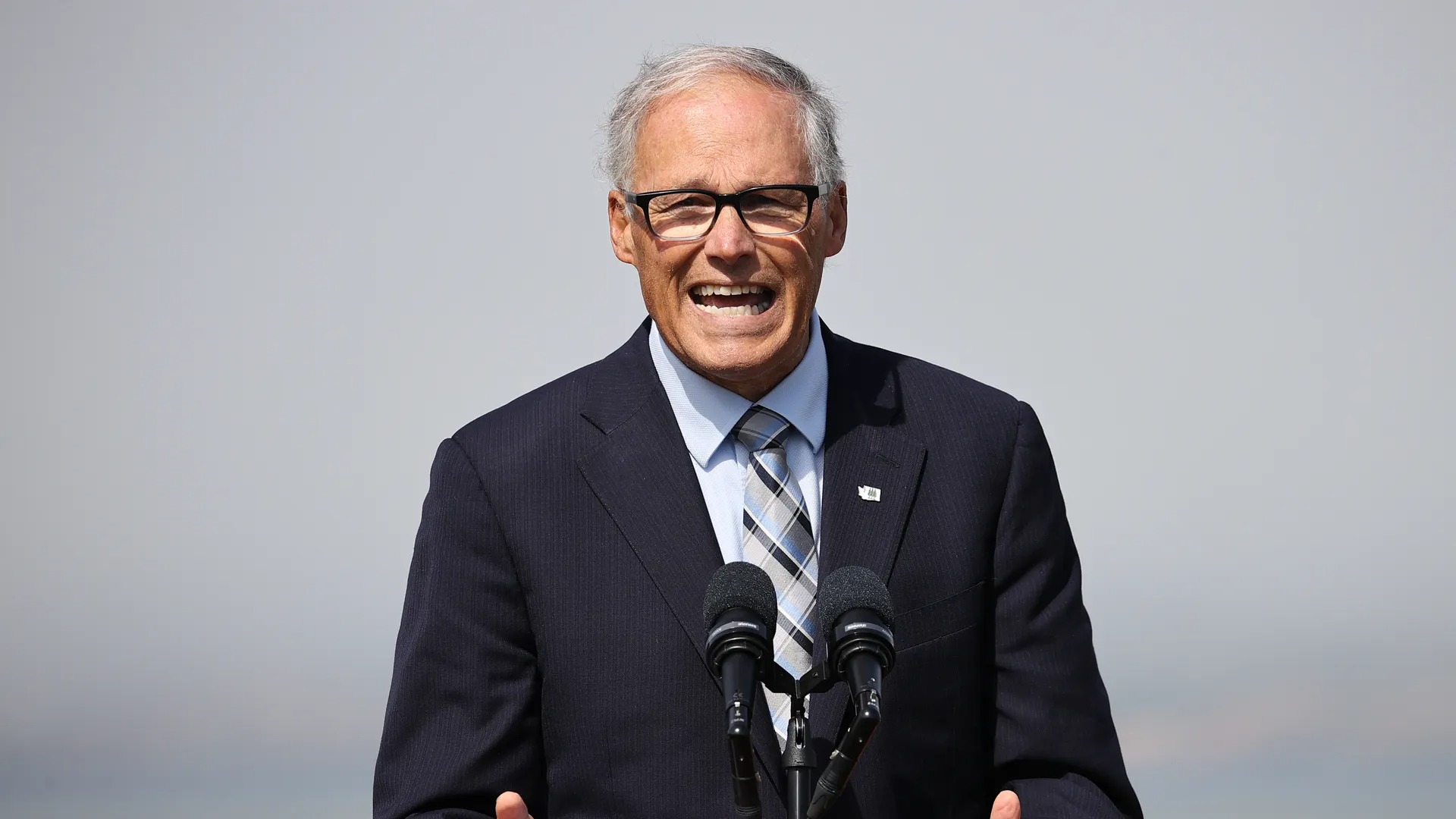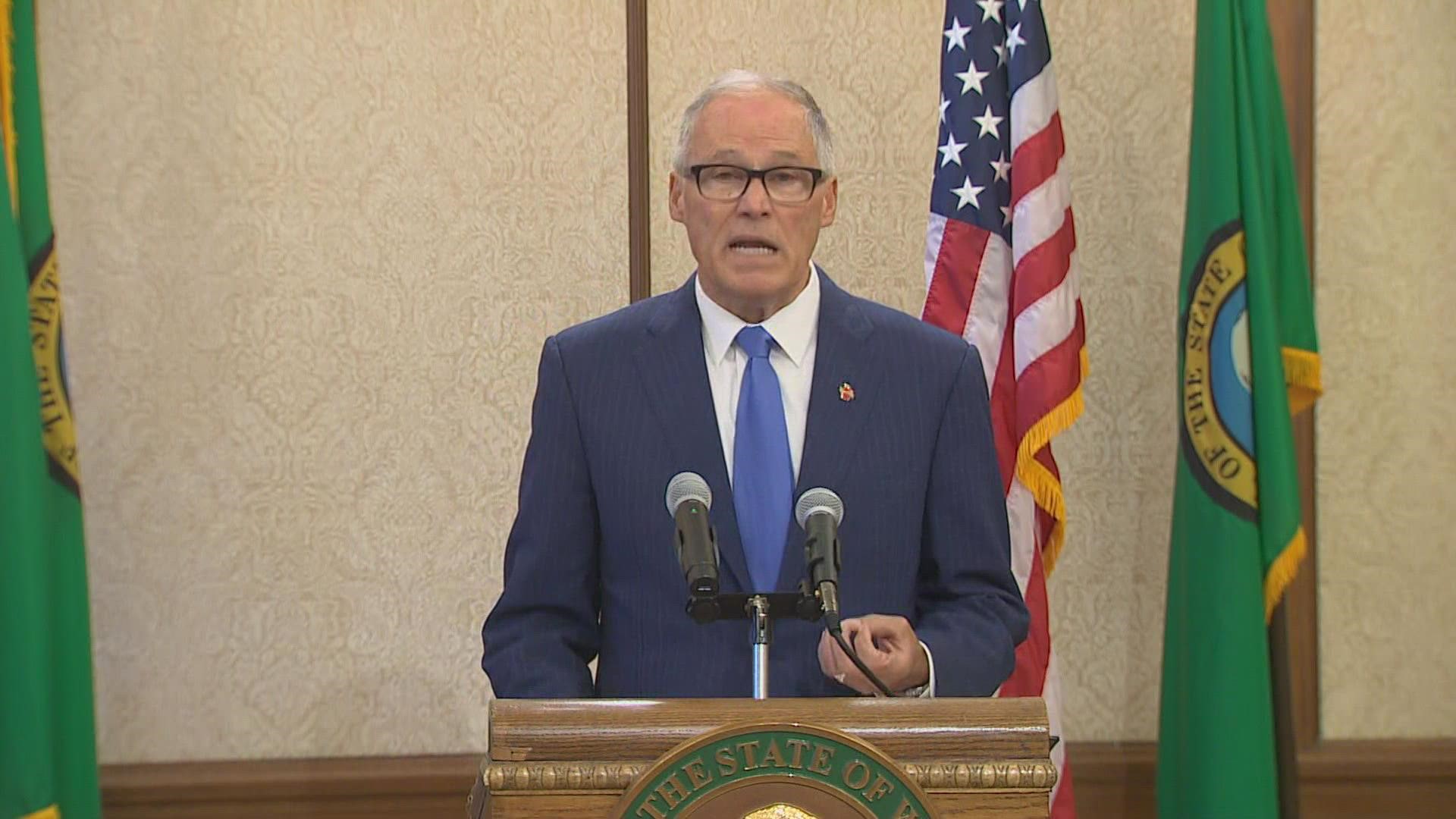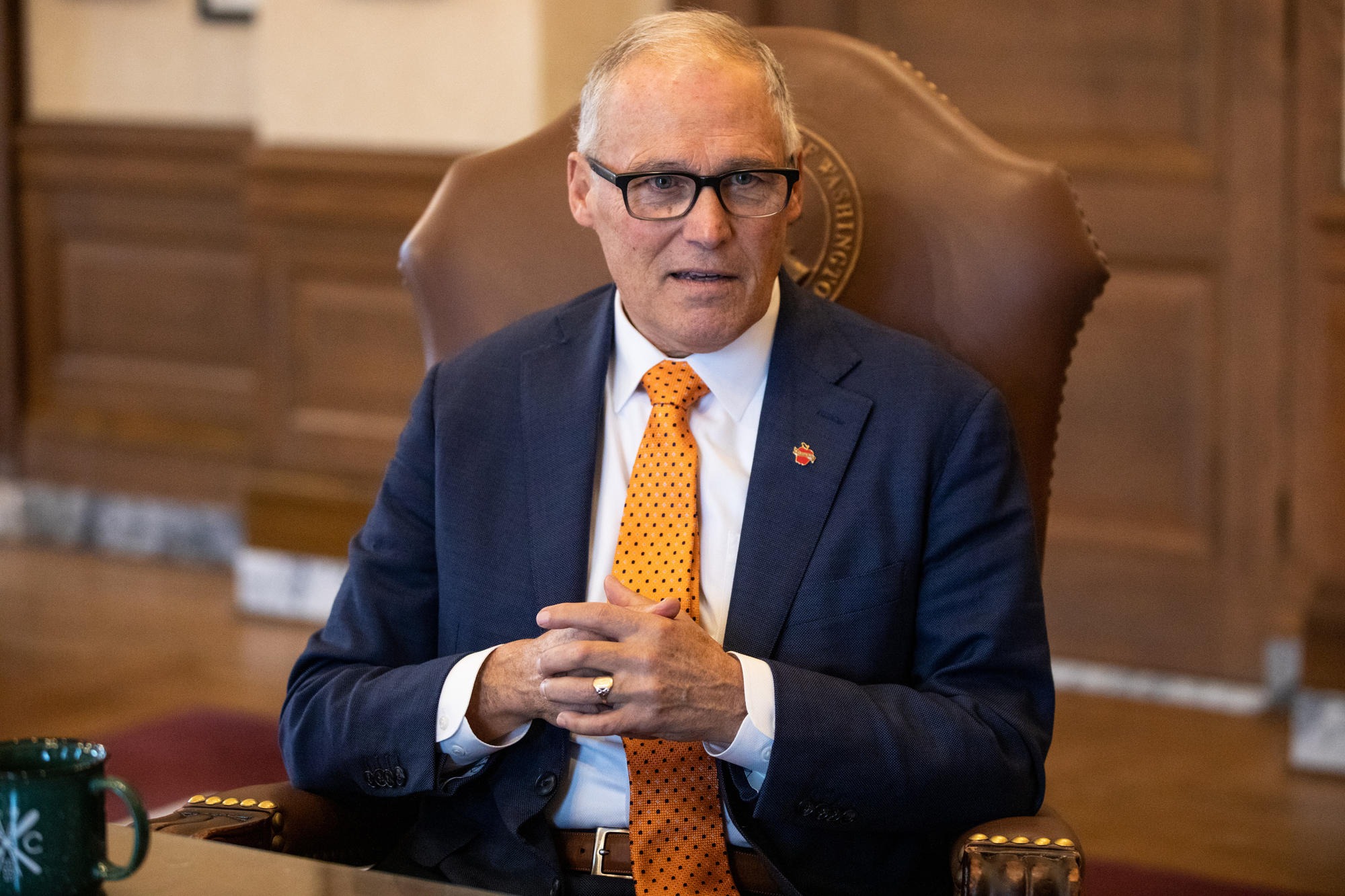Washington Governor Jay Inslee recently signed a significant measure aimed at addressing the disproportionate impact of opioid overdoses on tribes and Indigenous communities in the state.
The measure, part of a series of seven fentanyl-related bills signed by Inslee, allocates state funds to support tribes and Indigenous people who suffer from opioid overdoses at alarmingly high rates.
During the signing ceremony held on the Tulalip Indian Reservation, Inslee emphasized the urgent need to combat the fentanyl crisis comprehensively.
The bills signed seek to enhance opioid education, improve overdose prevention strategies, expand access to treatment, bolster recovery resources, and provide adequate support for first responders.

Washington Governor Jay Inslee (Credits: Axios)
Inslee underscored the importance of equipping first responders with essential life-saving tools, implementing effective public education and prevention programs, with particular attention to youth and Tribal communities, and increasing the availability of treatment facilities to facilitate access to assistance.
The tribe’s bill, a significant component of the legislative package, is expected to allocate nearly $8 million annually until at least 2031 to the 29 federally recognized tribes in Washington. These funds will be sourced partly from a sizable settlement between the state and significant opioid distributors.
Data from the U.S. Centers for Disease Control and Prevention reveal that Native Americans and Alaska Natives in Washington experience opioid overdoses at a rate five times higher than the state average, making it one of the highest rates in the country and significantly surpassing the national average.

Washington Governor Jay Inslee (Credits: King 5 News)
Tribal officials, including those from the Lummi Nation, have stressed the critical importance of this funding. The Lummi Nation, which declared a state of emergency over fentanyl last year, has implemented various measures such as drug-sniffing dogs, checkpoints, and treatment facilities to combat the crisis.
Among the bills signed is the Lucas Petty Act, which mandates including fentanyl education in the public school curriculum. Named after a 16-year-old who tragically lost his life to a fentanyl-laced substance, the bill aims to raise awareness and prevent similar tragedies.
Maria Trujillo Petty, Lucas’s mother, played a significant role in advocating for the bill’s passage, urging lawmakers to take action to protect children from the opioid crisis.
In addressing the opioid and fentanyl crisis, Washington state lawmakers and officials are striving to provide vital support to affected communities, enhance education and prevention efforts, and ultimately save lives.























